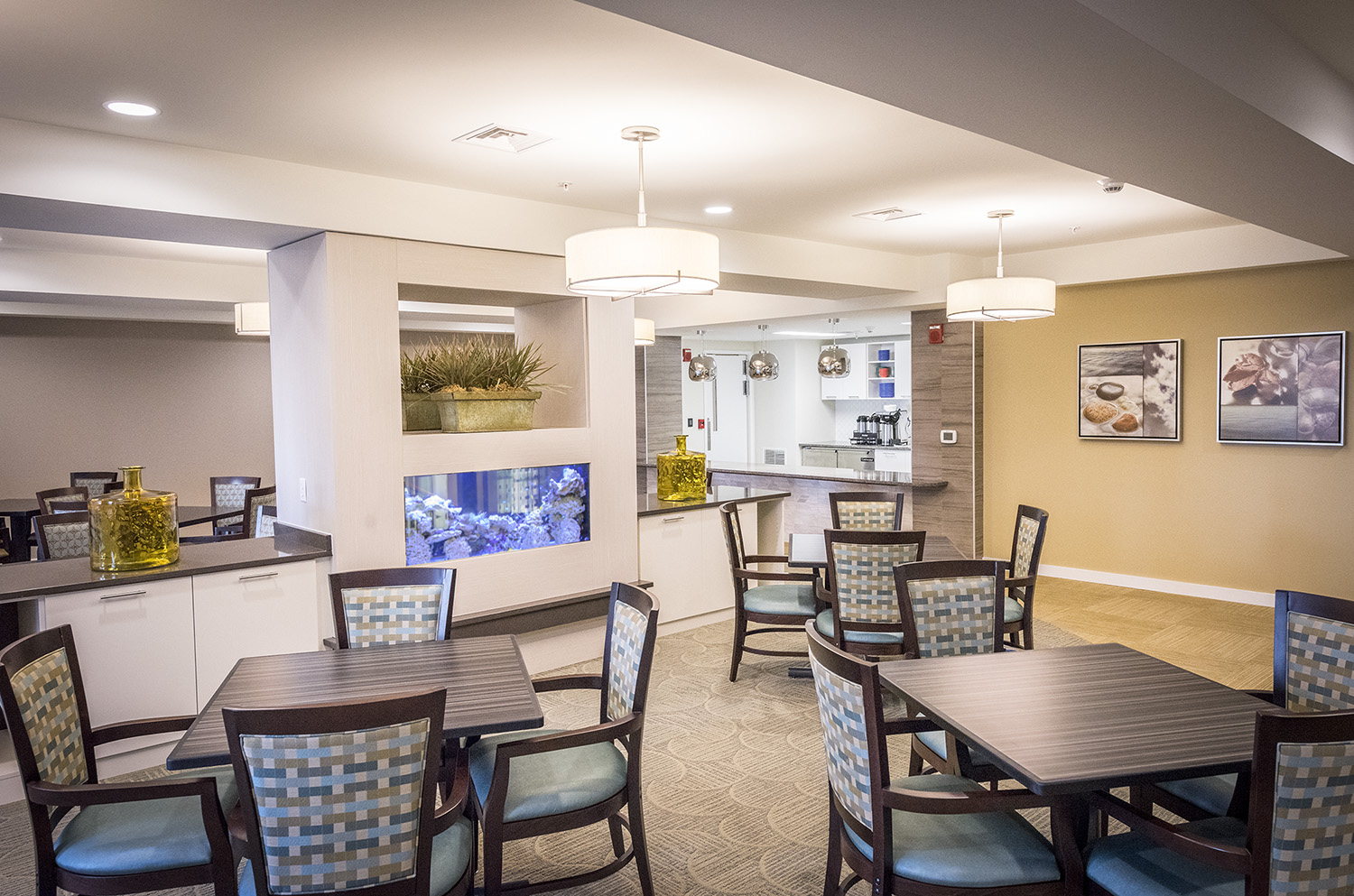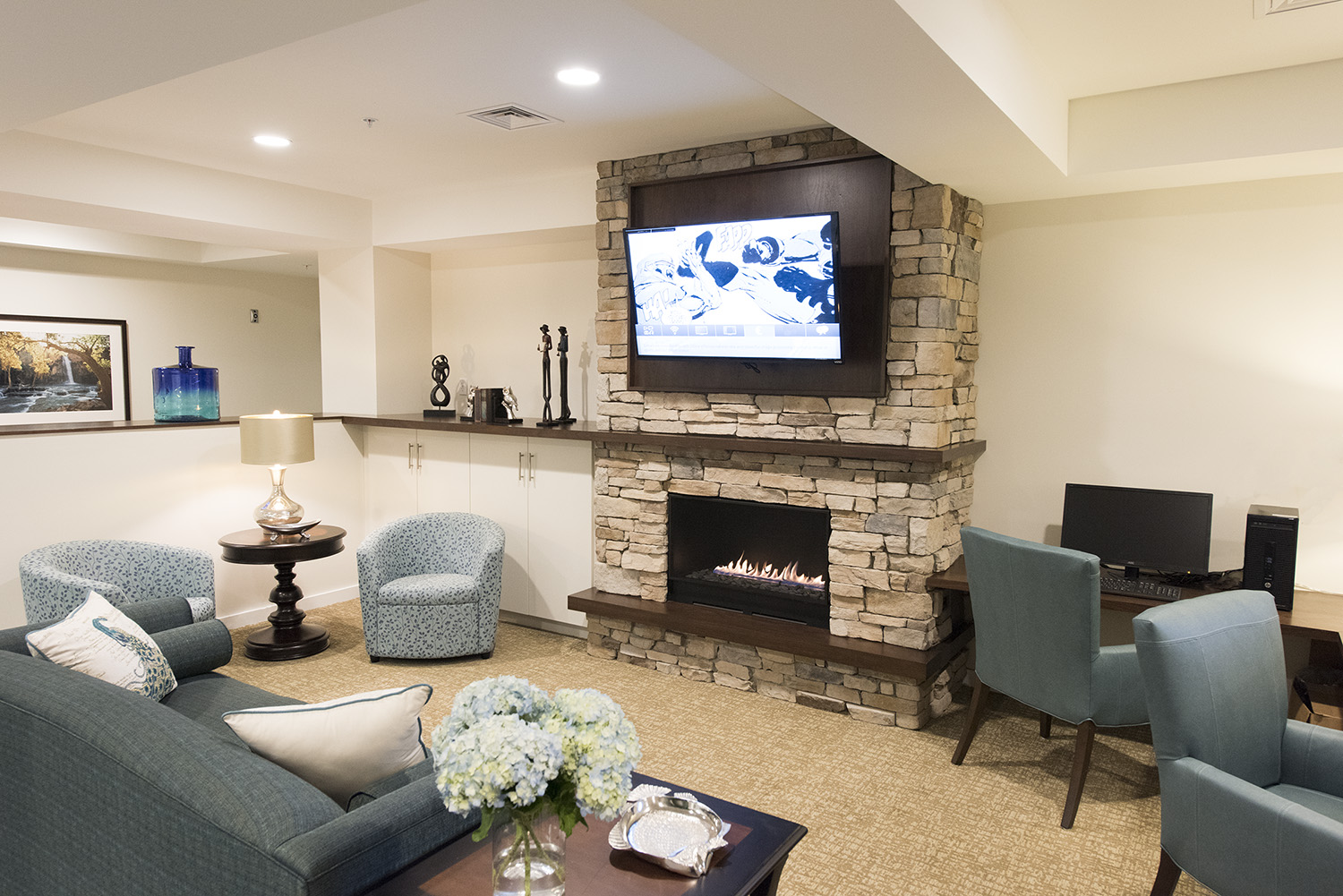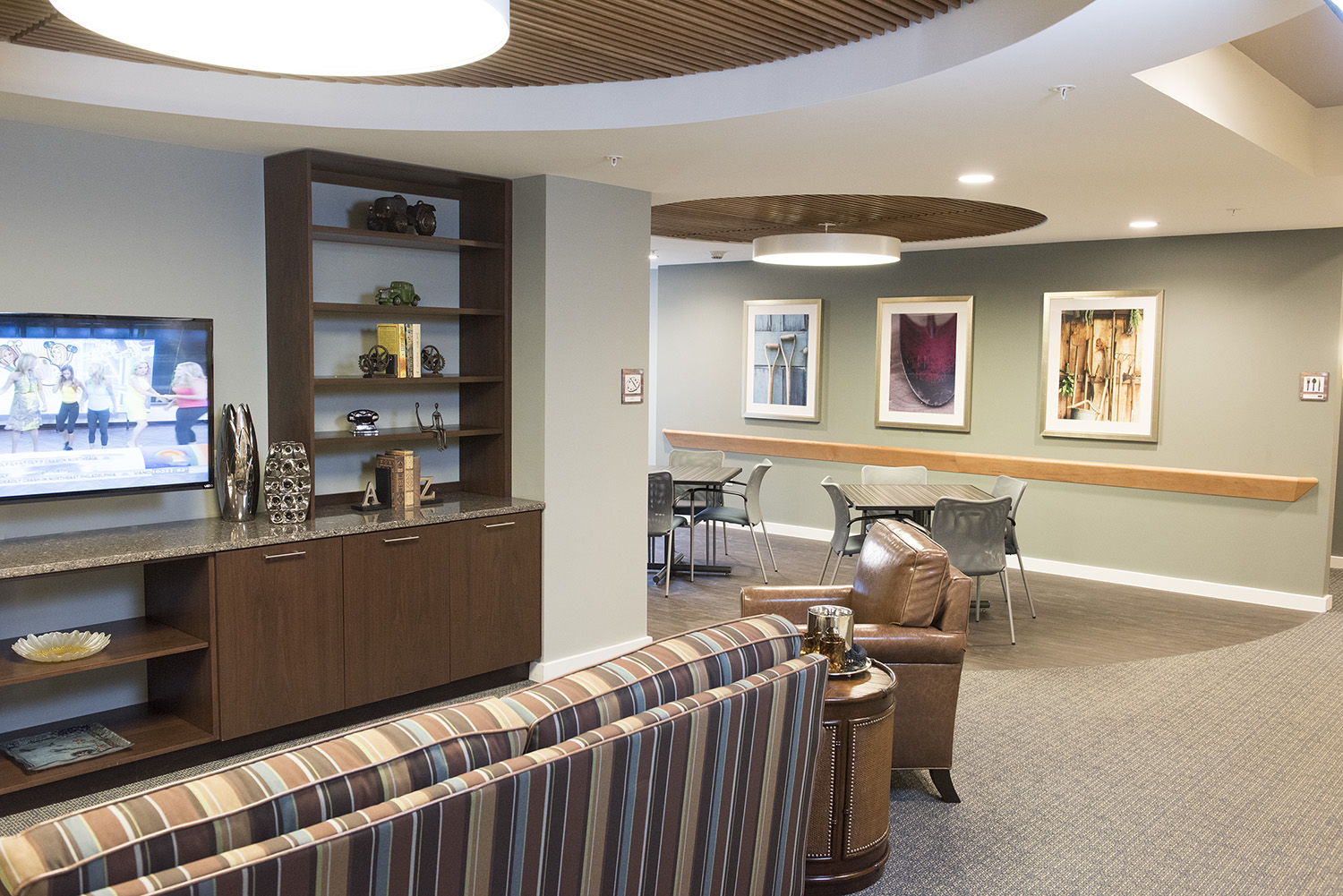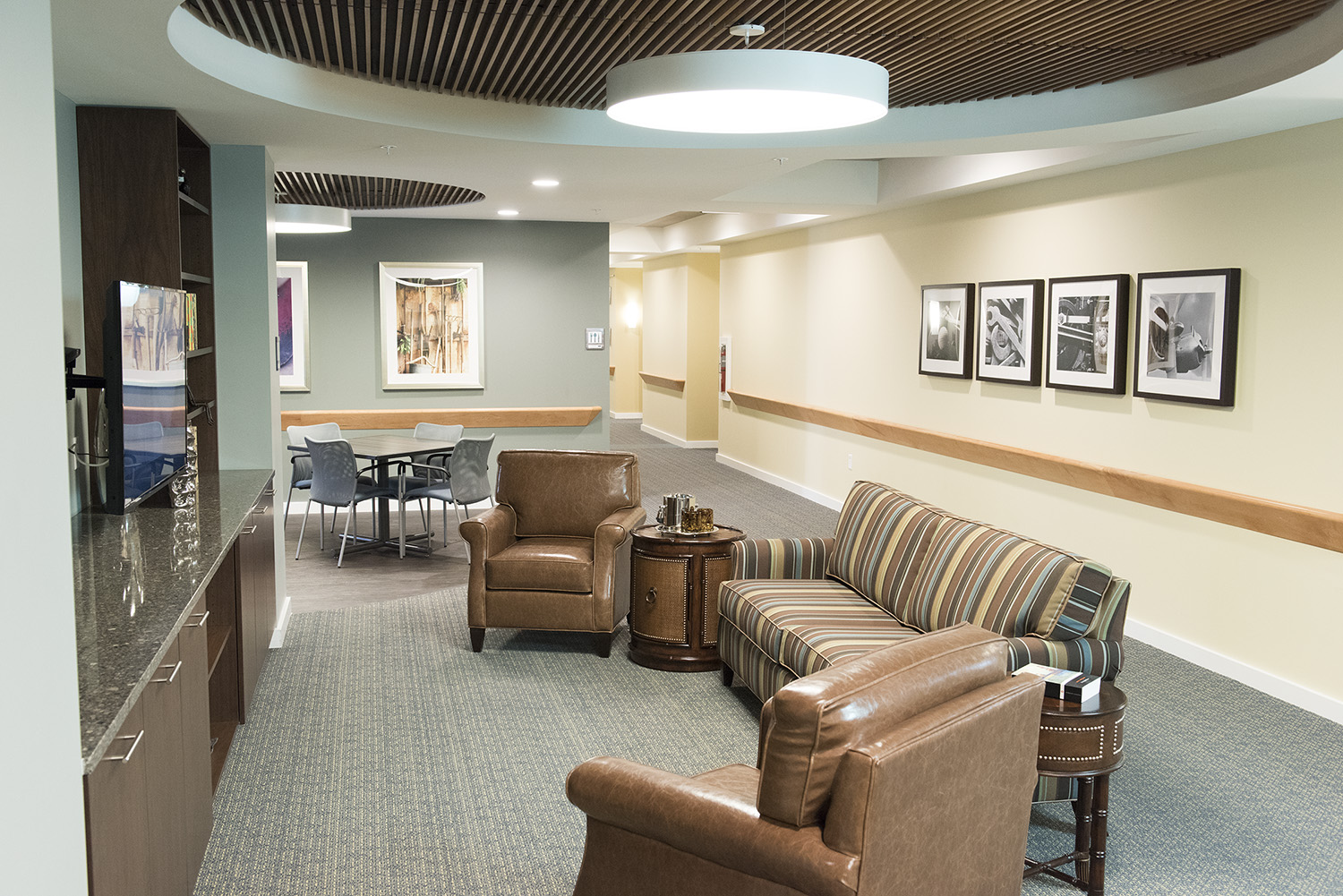Memory Care
at Daylesford Crossing
Positive Approach to Care®
Through a program called Positive Approach to Care® developed by internationally acclaimed dementia care expert Teepa Snow, our Memory Care team identifies each individual’s changing abilities and provides a personalized daily routine. This creates a predictable, soothing environment in which residents can feel more secure, calm, and comfortable.
A Neighborhood That Feels Like Home
Our Connections neighborhood centers around a central, large courtyard, providing comfortable and soothing surroundings with large windows that invite the outdoors in. A beautiful, restorative ambiance where residents feel at home, with attentive staff on site 24/7 for support and safety.

Compassionate Care & Services
- Choice of studio, or one- and two-bedroom apartments
- 24-hour care by dedicated and specially trained staff
- Engaging and therapeutic social, educational, and spiritual programming
- Medication management
- Three meals a day prepared by onsite culinary team, with flexible dining options
- Connections Dining Room
- Plush secured, outdoor garden
- Large aquarium
- Scheduled transportation and trips
- Routine housekeeping and personal laundry
- All utilities, including cable, internet
A Variety of Floor Plans
Personal taste is honored and respected in our wide array of Memory Care apartment options. Spacious and purposely designed studios and one- or two-bedroom floor plans are equipped with important safety features, which include oversized bathrooms offering wheelchair accessibility through doorways and into showers, as well as safety bars. Extra-large windows and high ceilings offer an open, airy feel throughout the residence.
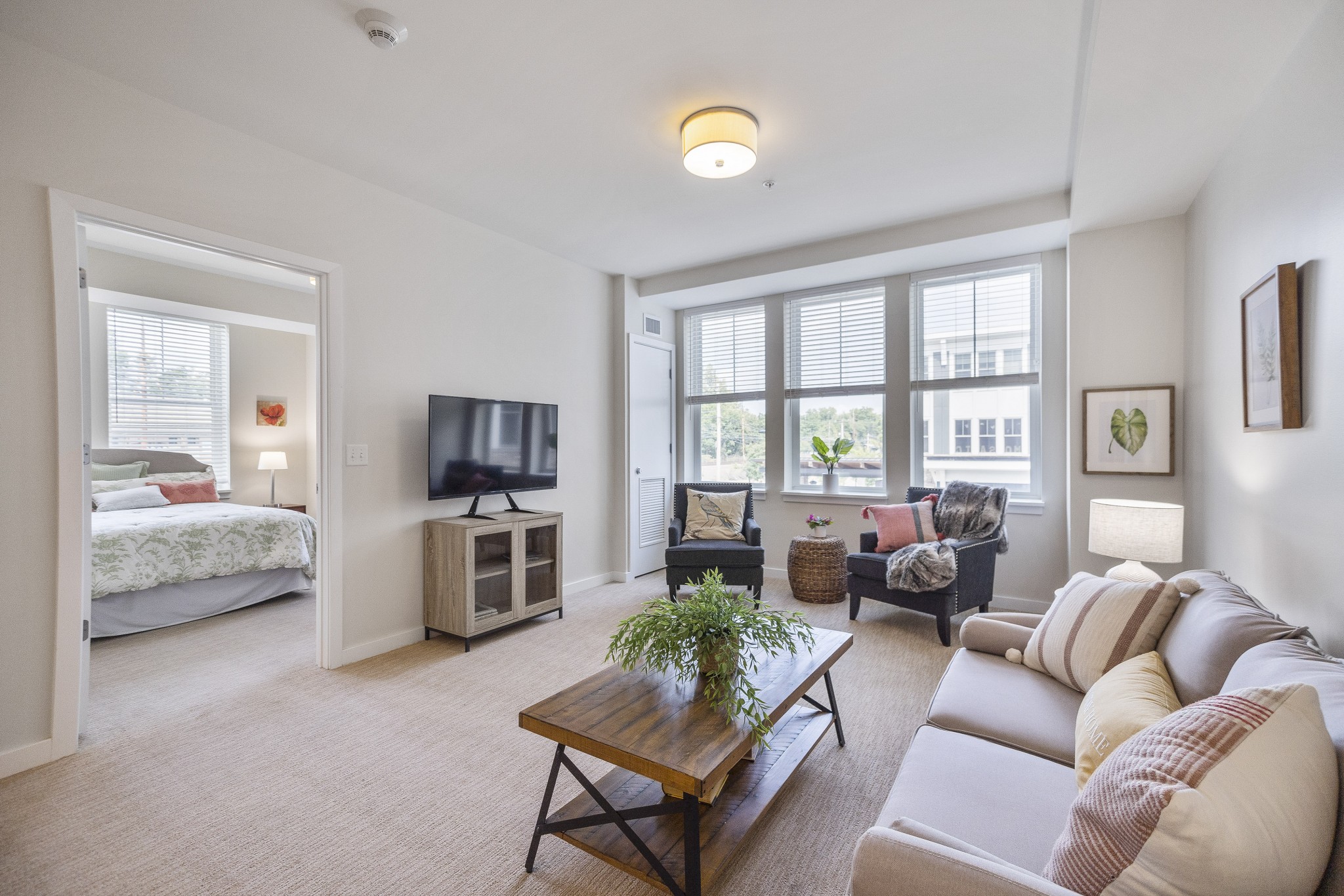
Life Enrichment
In our nurturing environment, residents can embrace a vibrant and active lifestyle. Just like every member of the Daylesford Crossing community, residents in Connections have the chance to lead a full, active lifestyle. The MOSAIC lifestyle provides opportunities and encouragement for a diverse range of activities and social events.
Connections programs encourage residents to engage in activities, including:
Social interactions that include large, small and one-on-one group activities including memory cafés and dementia support groups
Individualized life skills and adaptive programming to match each individual’s interests
Cultural and community engagement
Family events
Core strength, balance and mobility exercises
Physical therapy
Spiritual programs
Intergenerational connectivity
FAQs
*does not include monthly rental rates

